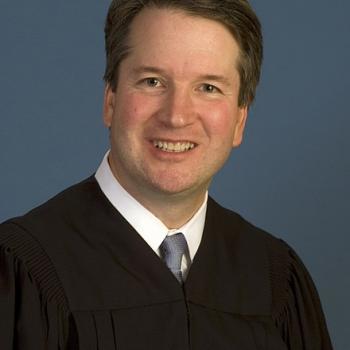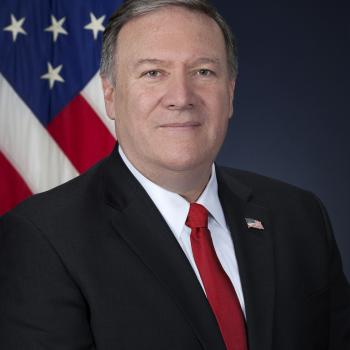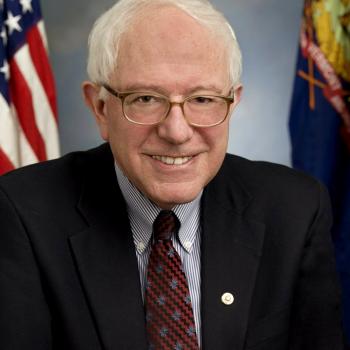On my previous offering on these pages, your humble servant opined on the Alfie Evans case [1], and it is a testament to my lack of social skills that I did not anticipate some of the hue and cry that it caused on social media. Two objections will be addressed here.
The first was that Catholic teaching does not require futile medical efforts, and that every medical opinion that had been rendered made the determination that Alfie’s case was hopeless. Both of these statements are true, but beside the point.
It is undeniably true, as I pointed out, that discontinuing “medical procedures that are burdensome, dangerous, extraordinary, or disproportionate to the expected outcome can be legitimate” according to Catholic teaching, since it involves no more than “the refusal of ‘over-zealous’ treatment.” (Catechism of the Catholic Church (CCC), §2278) [1] This is because here “one does not will to cause death; one’s inability to impede it is merely accepted.” (Ibid.)
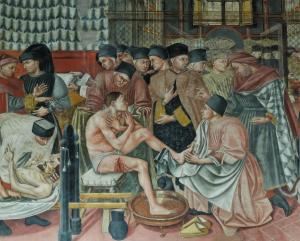 Moreover, one cannot, without having any relevant medical expertise, call into question the opinions of Alfie Evan’s doctors on this point. While it was natural to raise questions when Alfie seemed to persevere longer than expected, there was never any reason to suspect that his doctors were not trying to act in Alfie’s best interests, or that they applied any criteria to their decision other than medical judgment.
Moreover, one cannot, without having any relevant medical expertise, call into question the opinions of Alfie Evan’s doctors on this point. While it was natural to raise questions when Alfie seemed to persevere longer than expected, there was never any reason to suspect that his doctors were not trying to act in Alfie’s best interests, or that they applied any criteria to their decision other than medical judgment.
But at the end of the day, the decision of what to do about Alfie didn’t lie with his parents or his doctors: it was the courts that made the determination. And applying the same Catholic doctrine that justifies the avoidance of over-zealous treatment, this is a decision that should have been made by Alfie’s parents. Decisions on whether to discontinue treatment “should be made by the patient if he is competent and able or, if not, by those legally entitled to act for the patient, whose reasonable will and legitimate interests must always be respected.” (Ibid.)
That was not allowed to happen. Alfie’s parents wanted to try another option with an Italian medical facility that was willing to admit him. [2] But the State didn’t permit it. This is where the agents of the United Kingdom violated the principle of subsidiarity, which holds,
“’Just as it is gravely wrong to take from individuals what they can accomplish by their own initiative and industry and give it to the community, so also it is an injustice and at the same time a grave evil and disturbance of right order to assign to a greater and higher association what lesser and subordinate organizations can do. For every social activity ought of its very nature to furnish help to the members of the body social, and never destroy and absorb them’” (Compendium of the Social Doctrine of the Church (CSDC), §186) [3]
In this connection it is to be understood that “the family, a natural society, exists prior to the State or any other community, and possesses inherent rights which are inalienable….” (Charter of the Rights of the Family, Preamble, §D) [4] “The family, then, does not exist for society or the State, but society and the State exist for the family.” (CSDC, §214)
“Every social model that intends to serve the good of man must not overlook the centrality and social responsibility of the family. In their relationship to the family, society and the State are seriously obligated to observe the principle of subsidiarity. In virtue of this principle, public authorities may not take away from the family tasks which it can accomplish well by itself or in free association with other families; on the other hand, these same authorities have the duty to sustain the family, ensuring that it has all the assistance that it needs to fulfil properly its responsibilities.” (Ibid.)
None of this is to suggest that Alfie’s doctors should have been required to act against their professional judgment in a kind of involuntary servitude (which would have itself involved a violation of subsidiarity). But here we had other doctors in Italy who were willing to take a look at possible alternatives, and the family, according to Catholic teaching, had the right to give it a try. The state intervened and prohibited it, and this was an egregious overreach.
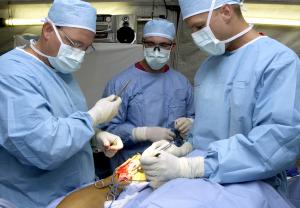 The second objection went to the question of universal healthcare. Your humble servant has advocated such before [5], and the inevitable taunt has been: what is one to think of “state-run healthcare” in light of the Alfie Evans controversy? Well, as should be obvious from the foregoing, it would be far from my intention to ever promote government-run healthcare strictly speaking. While government run healthcare would be preferable to many receiving no healthcare at all, such as in, say, the United States, it would be far better if universal healthcare could be accomplished without giving the government veto power over individual or family medical decision making.
The second objection went to the question of universal healthcare. Your humble servant has advocated such before [5], and the inevitable taunt has been: what is one to think of “state-run healthcare” in light of the Alfie Evans controversy? Well, as should be obvious from the foregoing, it would be far from my intention to ever promote government-run healthcare strictly speaking. While government run healthcare would be preferable to many receiving no healthcare at all, such as in, say, the United States, it would be far better if universal healthcare could be accomplished without giving the government veto power over individual or family medical decision making.
At the same time, there can be no serious dispute about whether Catholic social teaching holds it to be a governmental and societal responsibility that every citizen have access to necessary healthcare. It most certainly does.
We need look no further than the Catechism, where we read that concern “for the health of its citizens requires that society help in the attainment of living-conditions that allow them to grow and reach maturity: food and clothing, housing, health care, basic education, employment, and social assistance. (CCC, §2288) [6] We also read that the “The political community has a duty to honor the family, to assist it, and to ensure especially…in keeping with the country’s institutions, the right to medical care, assistance for the aged, and family benefits….” (CCC, §221) [7] [8] And Pope Francis reminded us not too long ago in the apostolic exhortation Evangelii Gaudium that it “is vital that government leaders and financial leaders take heed and broaden their horizons, working to ensure that all citizens have dignified work, education and healthcare.” (§205) [9]
There is no evading the fact, then, that Catholic teaching requires every society to ensure that healthcare is actually available to all of its citizens. Considerations of “free enterprise” are of no avail, let alone outright Social Darwinism. So the question arises: how can we accomplish this without also ceding personal and family medical decisions to the government?
The way to do it is to abandon the superstition that power must always follow money. The idea sounds quixotic to those of us living in a world where the two seem so inexorably intertwined so as to make the connection seem like a law of nature.
But abandoning this superstition is at the very heart of the principle of subsidiarity. Simply because people cannot afford healthcare on their own doesn’t mean that they are incompetent to make their own decisions about it. It follows that the subsidiary principle requires that the government provide any needed financial assistance for medical care without destroying individual and family decision making power in medical matters. This is because the principle precisely requires the government to provide subsidiary assistance where individuals, families, or lower level associations need that assistance, but not interfere where they don’t.
If all of this sounds impractical, it is because we have been bamboozled into believing the good is impractical. It is not. It only frustrates the machinations of the bad.
The icon of St. Joseph the Worker is by Daniel Nichols.
Please go like Christian Democracy on Facebook here. Join the discussion on Catholic social teaching here.



